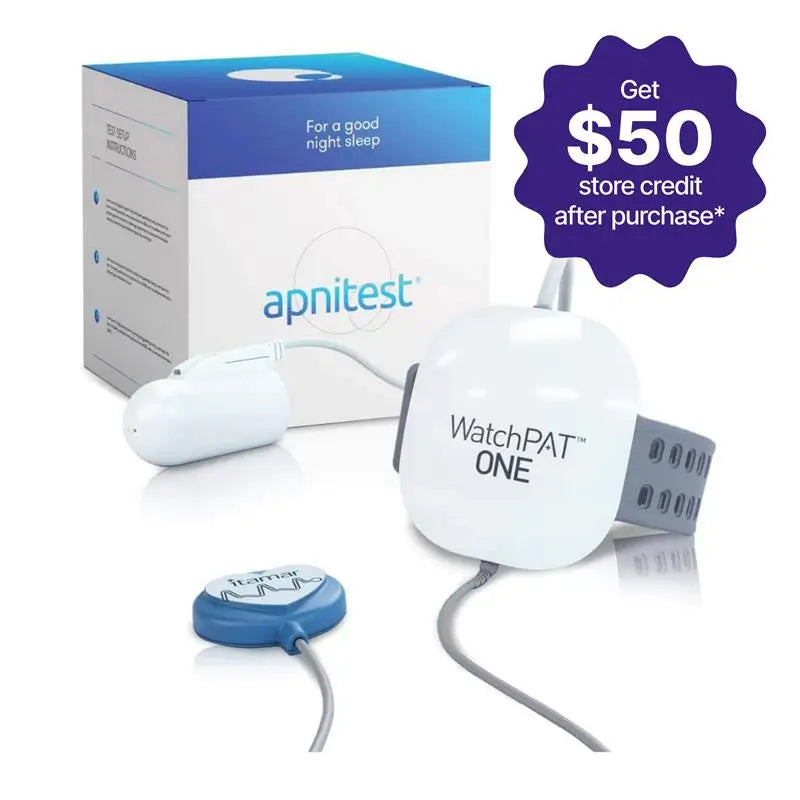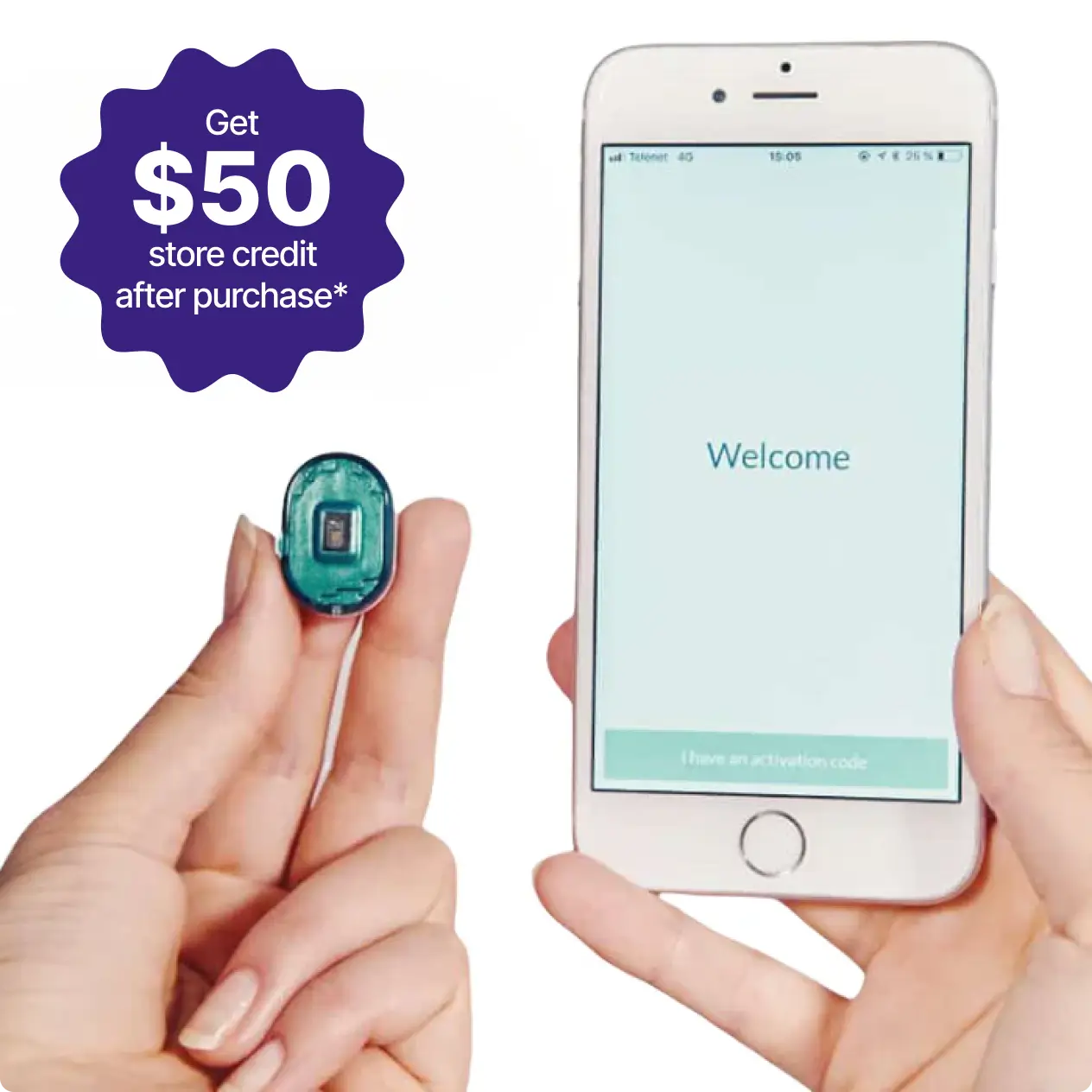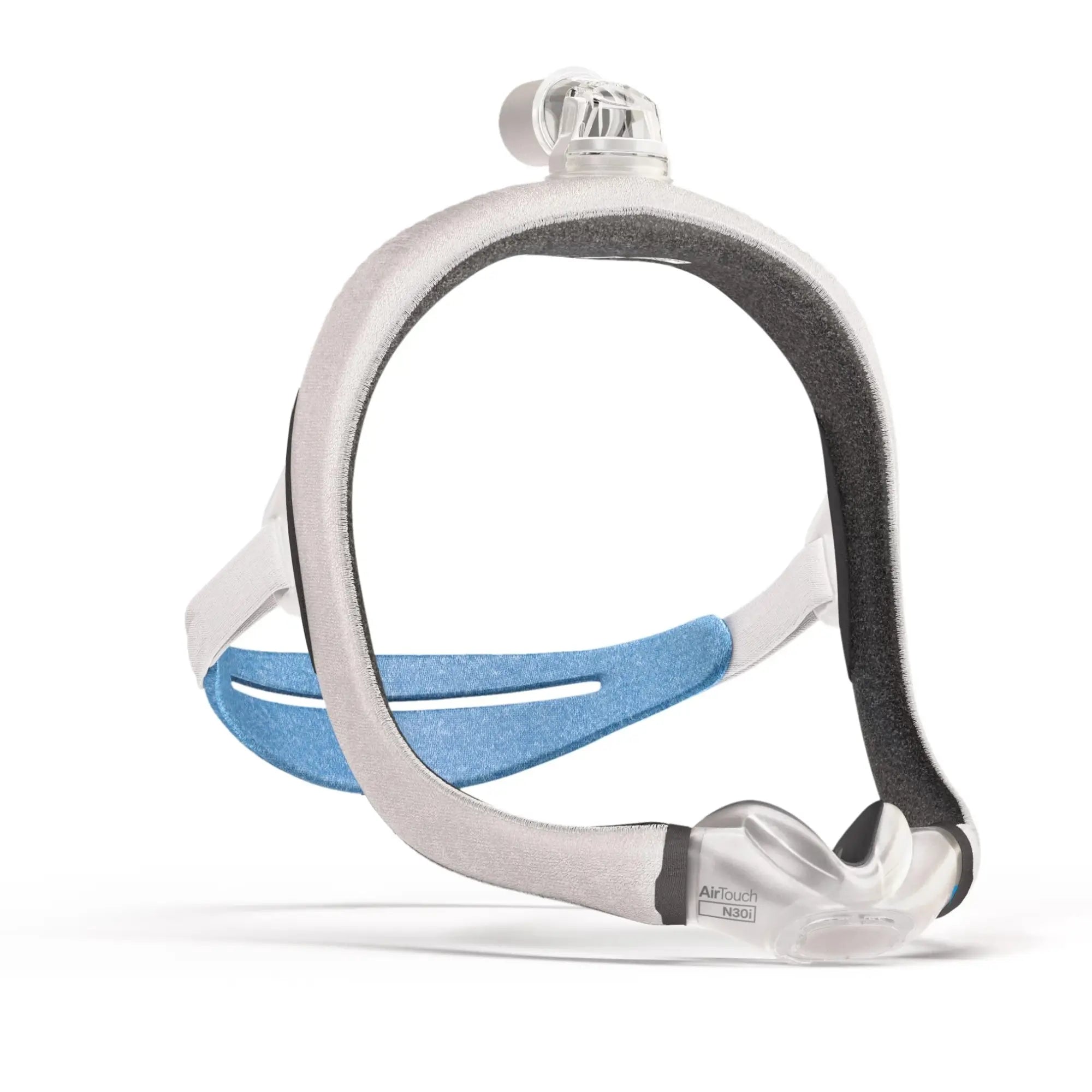There are many risk factors for sleep apnea. In this article, we will tell you a bit more about what this medical condition really is, what causes it, and what steps you can take to alleviate it.
- What is Sleep Apnea?
- What Causes Sleep Apnea?
- Tips for Sleeping with Sleep Apnea
Sweet dreams await.
What is Sleep Apnea?
Not all sleep is created equal. Sleep apnea is the technical name for a sleep disorder where breathing is interrupted during sleep. Sleep apnea is more than just "that thing that causes loud snoring." It can be a disruption to the lives of millions of Americans.
Apneas can last from 10 seconds all the way to a full minute. They tend to be the most problematic when they happen continuously. Some people have their normal breathing pattern abruptly interrupted dozens of times in the span of a single hour.
Doctors estimate that 22 million Americans live with sleep apnea, and more than 80 percent of those 22 million remain undiagnosed.
General physicians can easily misdiagnose the symptoms of sleep apnea if they are not given enough context. Symptoms can include depression, headaches, fatigue, and dry mouth.
By itself, sleep apnea is rarely a life-threatening condition. It may still be in your best interest to get tested if you are waking up in the middle of the night with apnea symptoms. Sleep apnea is a common sleep disorder but it can be serious, as it can greatly increase your risk of being involved in a motor accident.
Sleep deprivation is a factor for other chronic diseases like high blood pressure, heart disease, diabetes, and even lethargic metabolism.
What Causes Sleep Apnea?

There is a stereotype of sleep apnea as a condition that only affects overweight men over 50 years of age. While it is true that obesity may increase your risk factor for sleep apnea, other things should also be taken into account. In reality, sleeping with sleep apnea is a diverse experience. Even children can be affected.
- 3.2% prevalence in men 20-44 years old
- 11.3% prevalence in men 45-64 years old
- 18.1% prevalence in men 61-100 years old
These are the largest risk factors you will have to be mindful of if you want to prevent or diminish sleep apnea:
- Being middle-aged or older: People over the age of 60 have a higher risk of sleep apnea.
- Heart disorders: A heart attack increases your risk of developing sleep apnea.
- Using pain medications: Especially opioid-based medicine.
- Sleeping soldier style: This is what WebMD calls sleeping on your back.
Tips for Sleeping With Sleep Apnea
We recommend implementing simple self-care exercises into your routine such as taking up a sport, adopting a healthier diet, or cold weekly showers.
1. Buy a Good CPAP Machine
The most common way that people handle untreated sleep apnea is through continuous positive airway pressure therapy (also known as CPAP). Your doctor with have you do a sleep study before you receive a prescription for the CPAP therapy. This involves a machine that increases the airflow pressure in your throat to prevent your airway from collapsing when you breathe in. Some machines have a humidifier so instead of a blast of cold air you receive pleasantly warm air. Having a good CPAP machine will help you combat symptoms of sleep apnea like daytime sleepiness and help you get more hours of sleep.
CPAP machines are the most surefire long-term solution for sleep apnea, but finding the right machine is essential for optimal comfort and performance. Feel free to browse our curated selection of CPAP machines and supplies to find the right one for you.
2. Get Active
There is nothing tougher than changing your routine all by yourself. Routine is what persists when willpower fails. This means that if you honestly want to include exercise into your weekly routine — it doesn't have to be more than twice a week — the best single thing you can do is join a group that pushes you to work out and makes exercise more fun. Exercising can also help maintain a healthy circadian rhythm and promotes a healthy sleep schedule. Getting enough sleep is crucial for you to be able to function the next day.
Working out has proven benefits for those with sleep apnea because it cuts harmful fat while also boosting the respiratory and circulatory systems that are often weakened as a consequence of sleep apnea
3. Cold Showers
In the past decade, cold exposure has been shown to introduce a variety of beneficial changes in the human body. Not only do cold showers make your heart race and your lungs throb, but they also promote the browning of fat cells.
If you have never heard of brown fat, you are not the only one. This kind of fat (which activates upon exposure to the cold) is a recent discovery among adults. The difference between brown and white fat cells is that when brown fat cells burn, they explode the white fat cells around them, doubling your calorie burning.
4. Change Your Sleeping Position
This can cause more of a change than you might think. The grand majority of people who have sleep apnea have something called Obstructive Sleep Apnea (OSA), which means that the breathing problems stem from a blockage in your airways. Whether this blockage is inflammation, your tongue, or something else, sleeping on your side can help a lot. Sleeping on your side can also help if you have heartburn along with sleep apnea.
The worst position you can sleep in if you have sleep apnea is faceup. A 2006 study found that more than 50% of Obstructive Sleep Apnea is dependent on sleeping position.
5. Avoid Drinking
The most common type of sleep apnea is due to overly relaxed muscles in the airways. If alcohol relaxes the throat muscles that control your breathing while you sleep, it stands to reason that a heavy night of drinking would be a bad idea for somebody who has been diagnosed with this condition.
6. Avoid Smoking
The most common type of sleep apnea is due to overly relaxed muscles in the airways. If alcohol relaxes the throat muscles that control your breathing while you sleep, it stands to reason that a heavy night of drinking would be a bad idea for somebody who has been diagnosed with this condition.
7. Other Medical Problems
Diabetes and high blood pressure increase your risk of sleep apnea dramatically.
Dr. Asha Singh, director of the OHSU Sleep Medicine Program in Portland, says that "about 30 to 40 percent of adults with high blood pressure also have sleep apnea, which is more prevalent in those with drug-resistant hypertension. So approximately 80 percent of patients that don’t respond to hypertensive medication have some apnea."
8. Elevate Your Head Slightly
A study on the effects that mild head elevation has on sleep apnea concluded that raising your head slightly increases sleep efficiency and minimum oxygen saturation. This study tested a 7.5-degree angle. There is evidence that more intense angles can also lead to more efficient sleep for people with sleep apnea, but it is not necessary. Elevating your head may also help people who snore.
Get Started on Your Journey to Better Sleep

The sleep experts here at Sleeplay want you to have a restful night. Give these tips for healthier sleep habits a try and discover the difference that they make in your sleep quality (and your lifestyle in general).
For more information on tips and guides for sleep apnea solutions, explore our blog and find a variety of helpful resources to get you on the path to a better night’s sleep.

















































